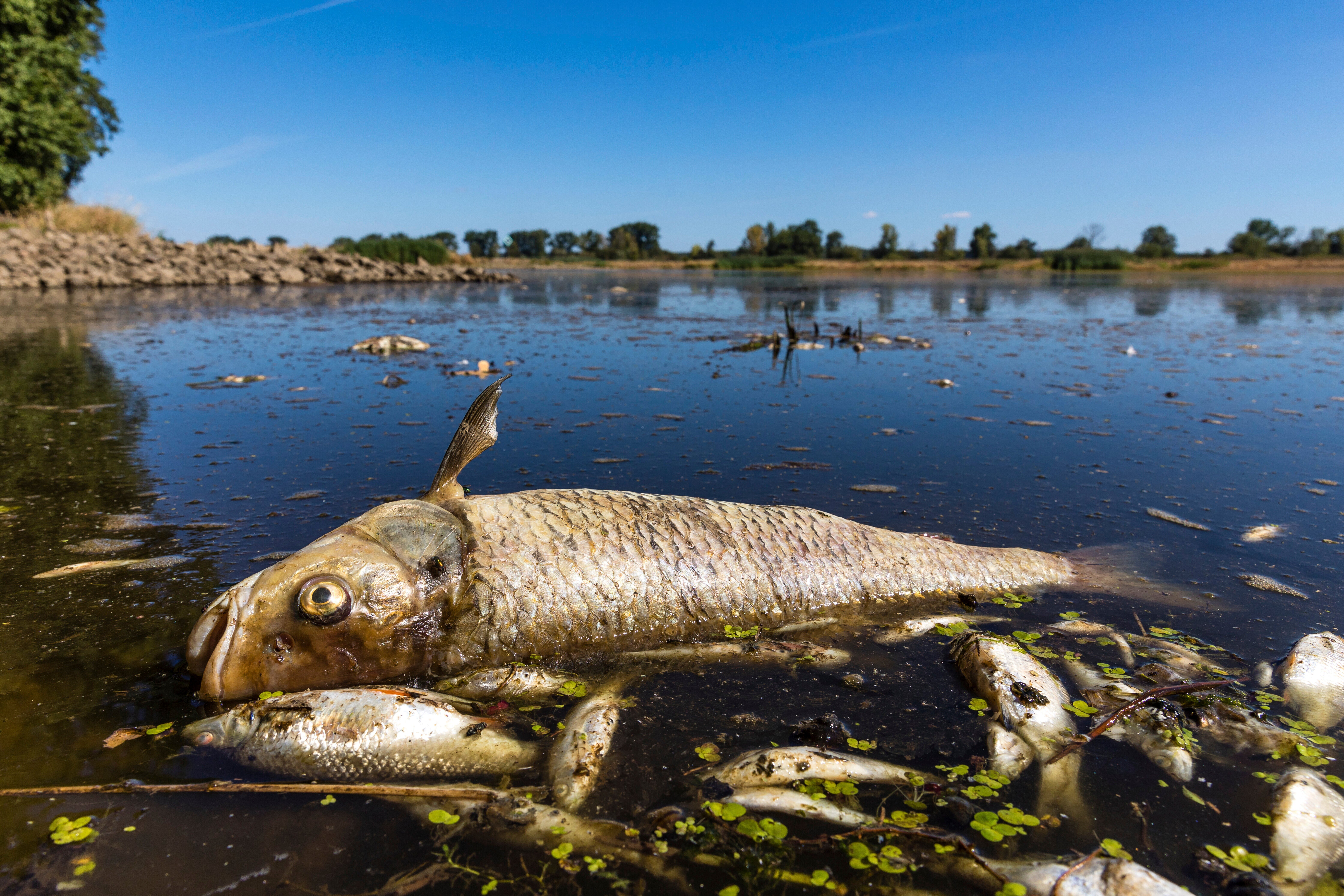Poland, Germany discuss avoiding repeat of deadly river pollution but ready for all scenarios
The environment ministers of Poland and Germany have met on the border of the two countries to discuss protection of a river against a repeat of deadly pollution that killed hundreds of tons of fish last year

Your support helps us to tell the story
From reproductive rights to climate change to Big Tech, The Independent is on the ground when the story is developing. Whether it's investigating the financials of Elon Musk's pro-Trump PAC or producing our latest documentary, 'The A Word', which shines a light on the American women fighting for reproductive rights, we know how important it is to parse out the facts from the messaging.
At such a critical moment in US history, we need reporters on the ground. Your donation allows us to keep sending journalists to speak to both sides of the story.
The Independent is trusted by Americans across the entire political spectrum. And unlike many other quality news outlets, we choose not to lock Americans out of our reporting and analysis with paywalls. We believe quality journalism should be available to everyone, paid for by those who can afford it.
Your support makes all the difference.The environment ministers of Poland and Germany met on the border of the two countries on Wednesday to discuss protection of a river against a repeat of deadly pollution that killed hundreds of tons of fish last year.
Polish Environment Minister Anna Moskwa said that she couldn't rule out the occurrence of another disaster despite tight monitoring along the Oder River and the blocking of the illegal discharge of chemicals and waste in order to prevent the growth of deadly golden algae.
“We are sure that we have done and will do everything that we can on our side," Moskwa said. “However, taking into consideration ... the limited knowledge about the algae in the world and ... its aggressive nature, we are expecting every scenario.
"We are preparing ourselves for every scenario — the positive and the negative one,” she said.
Moskwa met with German Environment Minister Steffi Lemke in Slubice, on the border with Germany, to discus ways of protecting the Oder, parts of which the two countries share.
They said the ecosystem seems to be rebuilding after last summer's disaster, in which up to 400,000 tons of dead fish were pulled from the Oder when high temperatures and high salination of the river from chemical discharge led to the growth of golden algae. Most of the discharge was from the Polish stretch of the river.
Lemke said that Poland's industry, especially coal mining, should refrain from discharging into the river during hot summer months, noting that the 2022 ecological catastrophe was caused by the growth of algae because of high temperature combined with high salination of the river, and low water levels. It was the worst natural disaster in the Oder in many years.
The German minister said that she and Moskwa didn't always see eye to eye and that cooperation was “not always easy.”
Climate activist Dominika Lasota told The Associated Press on Wednesday that the situation in the Oder would improve if Moskwa “did her job in a responsible way and said ‘stop’ to the mines, which are continuing to discharge salty waters into the rivers."
Lasota said a long-term solution would be transition to renewable energy sources.
She said that Greenpeace and other environmental organizations are warning that some discharges are continuing, and that threatens a repeat of the deadly pollution.
But Polish Prime Minister Mateusz Morawiecki said Wednesday that his government members are “caretakers and protectors of Poland's black coal and lignite mines and we will not allow Poland's coal mining to be closed."
Lemke said Tuesday that measurements still show high levels of “salt” contamination in the water, which, if temperatures remain high, could lead to another bloom of poisonous algae in the coming months.
“That’s why we urgently need to prevent further contamination of the Oder and do everything so this sensitive ecosystem can recover,” Lemke said in a statement.
The Oder River, about 840 kilometers (520 miles) long, starts in Czech Republic, but mostly runs through southwestern Poland and along the border with Germany, before emptying into the Baltic Sea.
___
Frank Jordans contributed to this report from Berlin.